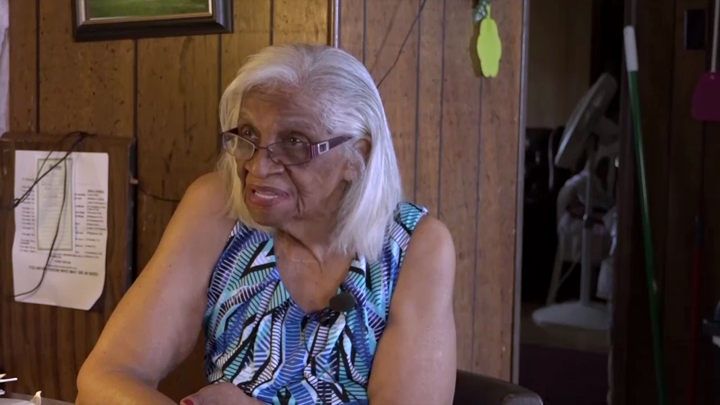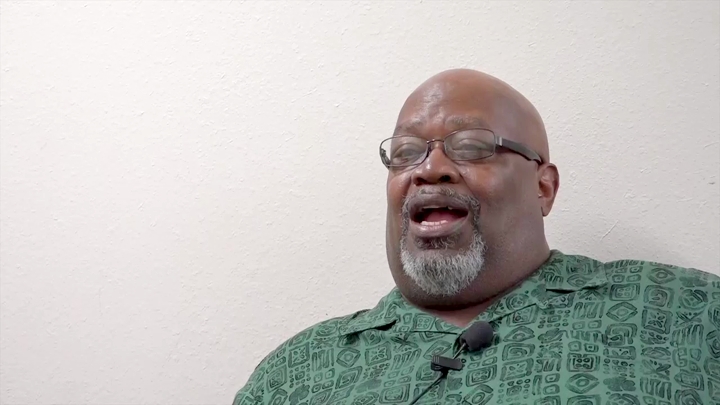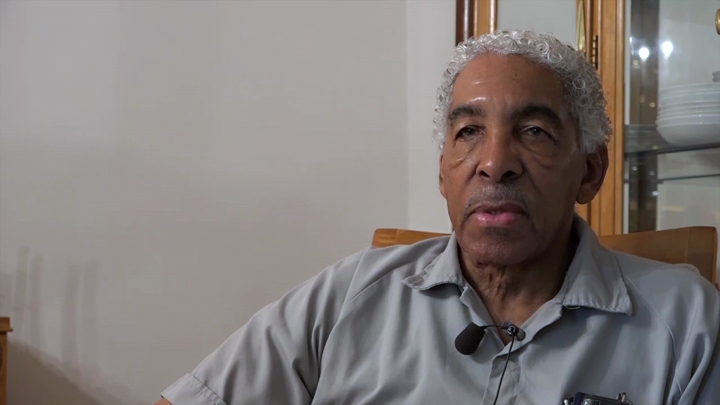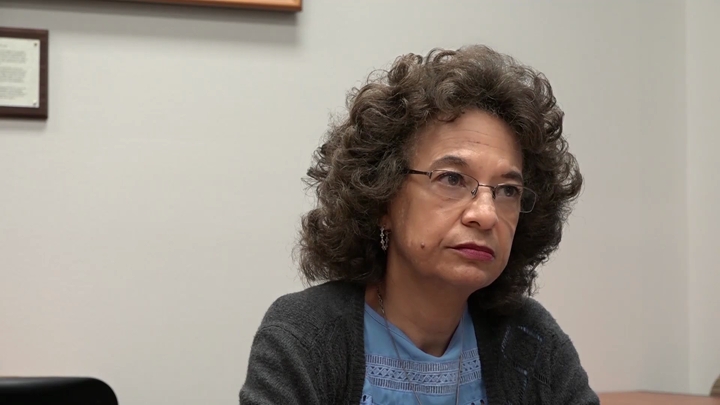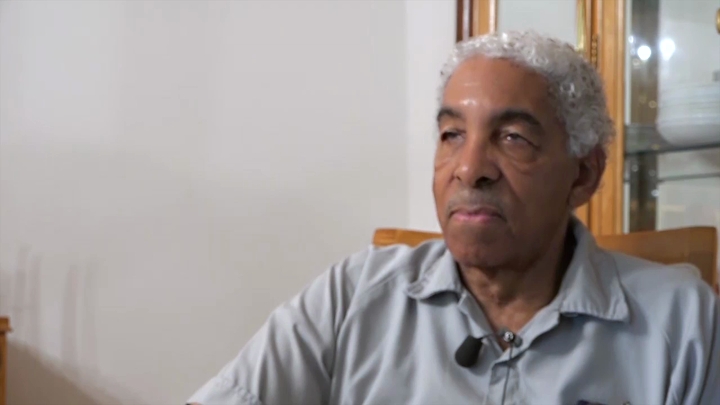Cross / Early Childhood School Education
sign up or sign in to add/edit transcript
Interviewer: What kind of stores were available in Mineral Wells that you remember? Cross: What kind of what? Interviewer: Stores. Cross: Stores? Oh, they had, maybe a J.C. Penney’s. They had a Piggly Wiggly. It was a grocery store. Poston’s. It was a men and women’s store. Let’s see, what else? Oh, they had these neighborhood grocery stores. Of course, we didn’t have any in our neighborhood, but we had some that were close, but they were not in our neighborhood. Interviewer: Ok. Well, speaking of things in your neighborhood, where did you go to school? Cross: I went to school at Dunbar High School. Like I said, it had a hundred and twenty-five students. K through—they were all on one campus, elementary through high school. That’s where we went. I remember when our meals—we didn’t have a cafeteria but behind the auditorium, there was a kitchen back there. They would cook the food and we would go through and get our plates and eat in the auditorium. They were five cents a plate. That’s where we had our meals. Interviewer: Where did you go to elementary school? Cross: I went to same place because the high school and elementary school were on the same campus. Interviewer: Okay, and what did you think of school? Cross: Well, I don’t know. I thought we had some good teachers, but certain subjects were not taught. So, we were at a disadvantage because when I got to college, I was in business, and I couldn’t type, but most of the people there could. They had it in high school. It’s things like that that kind of got us behind, and I was thinking about—we didn’t have a chemistry lab and the NAACP came in and they wanted to file suit against the school district, so we could have a chemistry lab, but only the people that had children in school could be on the suit. So, the convinced my mother and father to be on the suit. Now, the other blacks that were on the suit, they had their own businesses, but when it came out in the paper that we were on the suit, we all lost our jobs. My mother, father, everybody. We didn’t have any income coming in because they fired everybody because we were filing this suit against the Mineral Wells Independent School District. Interviewer: What year about was that? Cross: I was out of school, but it was in the forties. Forty-seven or something like that. I can’t remember the year. I just remember we all lost our jobs because we were on that suit. But we won the suit and we got the chemistry lab, but my youngest brother was in school at that time. I think we were all out, all the rest of the brothers, but that’s what happened. We all just lost our jobs and then eventually, other white people started hiring us. So, we eventually—everybody got their job back, but just right on the spot they fired all of us when it came out in the paper that we were filing a lawsuit against the school district for a chemistry lab. Interviewer: Did they tell you to your faces that that was why they were firing out? Cross: Yes. Interviewer: Awful.
| Interview | Interview with Herbert Cross |
| Subjects | Work › Discrimination at Work › Discrimination at Work: Struggles Against |
| Housing › Neighborhoods | |
| Discrimination or Segregation › Discrimination or Segregation in Stores | |
| White Resistance to Civil Rights | |
| Education › All-Black Education | |
| Education › Elementary Education | |
| Education › Secondary Education | |
| Tags | Piggly Wiggly |
| Holston's | |
| Educational Disadvantages | |
| Dunbar School, Mineral Wells, Texas | |
| Chemistry Lab | |
| J.C. Penney | |
| sign up or sign in to add/edit tags | |
| Interview date | 2016-06-20 |
| Interview source | CRBB Summer 2016 |
| Interviewees | Cross, Herbert |
| Interviewers | May, Meredith |
| Duration | 00:04:40 |
| Citation | "Early Childhood School Education," from Herbert Cross oral history interview with Meredith May, June 20, 2016, Lufkin, TX, Civil Rights in Black and Brown Interview Database, https://crbb.tcu.edu/clips/2388/early-childhood-school, accessed February 19, 2026 |


